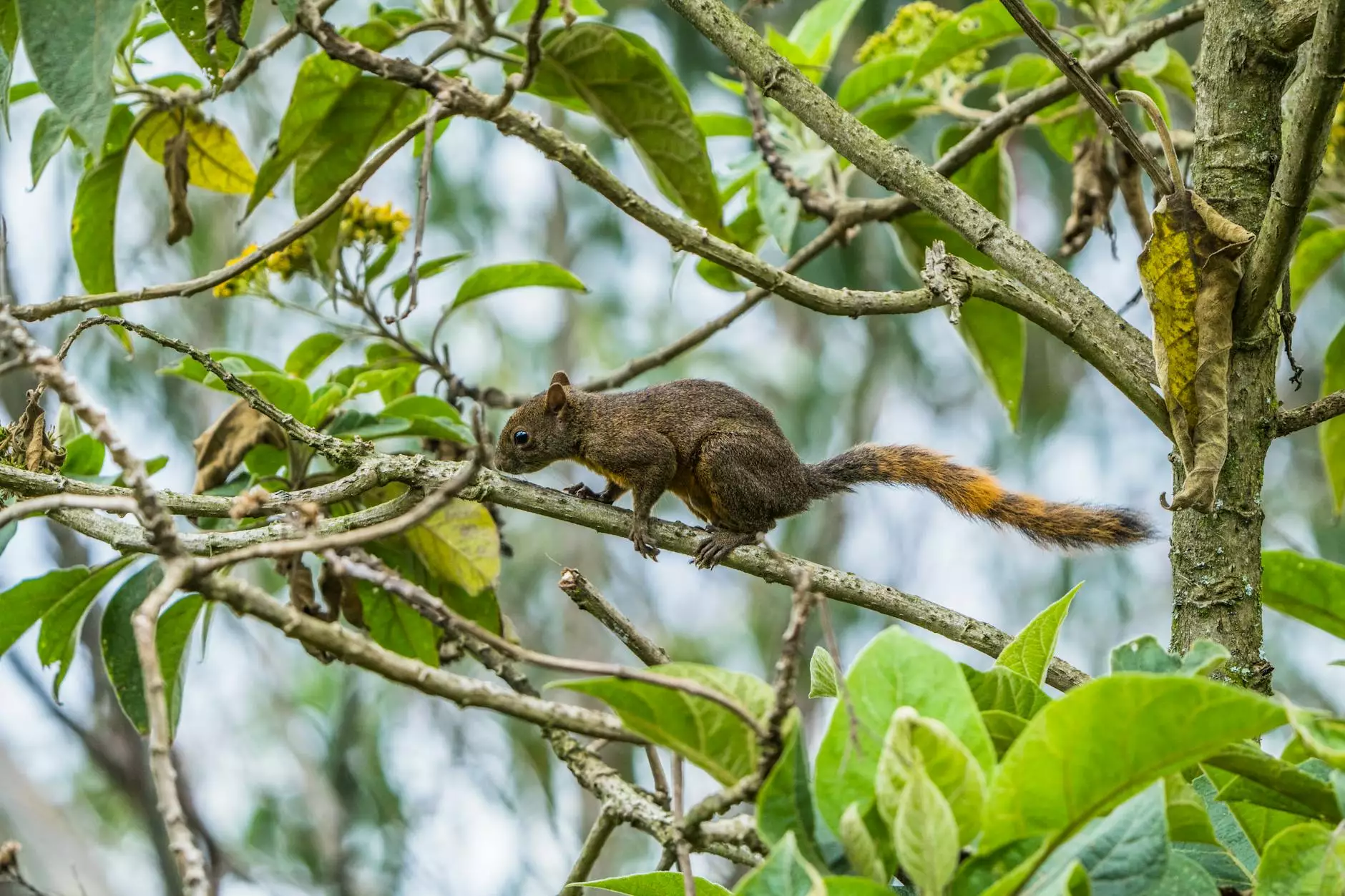Squirrels Under Solar Panels: Why They Matter and How to Manage Them

In the quest for sustainable energy, solar panels have emerged as a beacon of hope for environmentally conscious homeowners and businesses alike. However, with the increasing popularity of solar energy comes some unique challenges, particularly concerning local wildlife. Among the most common culprits are squirrels under solar panels. Understanding how these creatures interact with your solar installation is crucial for both the performance of your solar system and the preservation of local wildlife.
The Importance of Solar Panel Maintenance
Maintaining solar panels is essential to ensure they operate at maximum efficiency. Regular cleaning and inspection guarantee that your investment continues to yield substantial energy output. Neglect, however, can result in decreased performance, leading to wasted resources. One persistent challenge faced by many homeowners involves unwanted pests, chiefly squirrels, which find refuge under solar panels.
Understanding Squirrel Behavior
Squirrels are highly adaptable critters that thrive in various environments. Their natural instincts drive them to seek shelter and nesting spots. Solar panels, with their elevated and sunlit positions, provide a perfect sanctuary. Here are some key points regarding squirrel behavior that homeowners should consider:
- Nesting Habits: Squirrels can create nests in the wiring and components of solar panels, potentially causing damage or short circuits.
- Food Sources: These creatures may be attracted to the area around your solar panels in search of food, increasing their likelihood of nesting nearby.
- Territorial Instincts: Squirrels may defend their nests aggressively, posing a risk to individuals attempting to remove them.
Signs of Squirrels Under Solar Panels
Determining whether squirrels have taken up residence under your solar panels is the first step in addressing the issue. Watch for these signs:
- Noise: Scratching or scurrying noises can indicate squirrel activity, especially during dawn and dusk.
- Nesting Materials: Look for twigs, leaves, or other debris around the solar panel area that might suggest nesting.
- Damage: Visible damage to wiring or the panels themselves can be a sign of squirrels trying to enter or exit their nests.
The Risks of Squirrels Under Solar Panels
While squirrels are often seen as harmless, their presence under solar panels can lead to several problems, including:
- Wiring Damage: Squirrels may chew through electrical wiring, leading to costly repairs and decreased functionality of the solar system.
- Fire Hazards: Frayed wires can spark and potentially create fire hazards for your property.
- Reduced Efficiency: A dirty or obstructed solar panel due to nesting materials can significantly lessen solar energy capture, leading to lower output.
Strategies for Managing Squirrels Under Solar Panels
Fortunately, several strategies can help manage and deter squirrels from settling under your solar panels:
1. Professional Solar Panel Cleaning
Engaging a professional cleaning service, such as washmesolar.com, can help ensure your solar panels are not only clean but also free of potential hazards posed by wildlife. Regular cleanings (typically recommended every 6-12 months) can prevent squirrels from nesting. Professionals can also check for signs of damage while cleaning.
2. Physical Barriers
Installing hardware cloth or wire mesh around the edges of solar panels will help prevent squirrels from accessing the area beneath. These barriers allow rain and solar access while keeping curious pests out.
3. Repellents and Deterrents
Consider using natural repellents, such as peppermint oil or cayenne pepper, around your solar panel installation. These substances deter squirrels without harming them. Additionally, deploying ultrasonic repellents can create an uncomfortable environment for them.
4. Routine Inspections
Conducting frequent inspections can help you catch signs of squirrel activity before it becomes a severe issue. During these checks, ensure that there are no hazardous materials or nests under the solar panels. Setting a schedule for inspections can prevent problems down the line.
Sustainable Approaches to Wildlife Management
In dealing with squirrels and other wildlife, it is crucial to adopt a sustainable approach that respects the ecosystem while protecting your home. Here are a few sustainable methods:
- Humane Trapping: If squirrels have already nested, utilize humane traps to relocate them safely. Check your local wildlife regulations before proceeding.
- Community Awareness: Educate your neighbors about squirrel behaviors and the importance of keeping solar panel areas clean.
- Encouraging Natural Predators: Providing habitats for natural squirrel predators like hawks can help control squirrel populations naturally.
Long-Term Benefits of Solar Panel Care
Investing in regular maintenance of your solar panels and managing wildlife interactions will yield long-term benefits:
- Maximized Energy Output: Clean panels operate more efficiently, thereby maximizing your energy savings.
- Extended Lifespan: Regular inspections and prompt repairs can extend the life of your solar panels, providing better value for your investment.
- Enhanced Property Value: A well-maintained solar system can significantly increase your home's resale value.
Conclusion
Squirrels under solar panels may seem like a trivial issue, but they can lead to significant problems if not addressed. Understanding the behavior of these animals and implementing effective management strategies can protect your solar investment while fostering harmony with local wildlife. By prioritizing maintenance and employing both physical and natural deterrents, you can create a safe and efficient environment for your solar panels, ensuring their optimal performance for years to come. Trust washmesolar.com for all your solar panel cleaning needs and enjoy peace of mind! Whether it's routine cleanings, inspections, or advice on managing wildlife, our experts are here to help you maintain your system in top condition.





